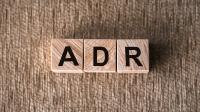New rulings on the Danish tax treatment of American Depositary Receipts (ADR)
Two new binding rulings from the Danish Tax Council address how American Depositary Receipts certificates should be treated from a Danish tax perspective. Read more below where we elaborate on the new rulings.

Introduction
Two recent binding rulings from the Danish Tax Council address the Danish tax treatment of American Depositary Receipts (ADR).
ADR programs are not a new invention, being relatively widespread among large listed companies in Denmark. Nevertheless, the Danish tax treatment of ADR programs has so far been unclear, including the questions how a repurchase of ADRs by the issuing company should be treated, who is to be considered the beneficial owner of dividends distributed by the Danish company, and how ADR certificates are to be qualified for Danish tax purposes.
The cases
Both cases concerned Danish companies which previously had carried out a stock exchange listing in the USA. As the companies' shares could not be directly listed on the US stock exchange due to incompatibility between Danish and American company law, the listing was carried out through an ADR program.
As part of the ADR programs, the companies had entered into an agreement with a custodian bank for the establishment of an ADR program, under which the unlisted shares in the Danish companies could be deposited with the custodian bank subject to the issuance of ADRs that could be traded on the US stock exchange. In the first case, one ADR corresponded to 14 shares in the Danish company. In the other case one ADR corresponded to one share.
The Danish companies had requested the rulings to obtain certainty of the Danish tax implications of a repurchase of ADRs (i.e. both companies were contemplating to purchase a portion of the ADR's which had been issued on the basis of the shares in each of the Danish companies).
Under Danish tax law, a repurchase of shares by the issuing company is generally taxed as dividend. However, if the shares are listed on a stock exchange or other trading venue, the repurchase is not treated as dividend, but taxed as a normal sale of shares (i.e. is subject to capital gains taxation).
In both cases, the ADRs were listed on a stock exchange, while the actual shares underlying the ADRs were not.
The decision of the Danish Tax Council
In both cases, the Danish Tax Council ruled that:
- the ADRs should be treated as shares in the Danish companies,
- the holders of the ADRs should therefore be treated as holders of shares in the Danish companies, and
- the ADRs should be treated as listed shares, and the repurchase of the ADRs should therefore be taxed accord-ing to the rules on capital gains on shares (and not as a dividend).
The Danish Tax Council stated that to determine the tax implications of the repurchase of ADRs, a qualification of the ADR certificates had to be made.
It was the opinion of the Danish Tax Council that, generally, it is the custodian bank that should be considered shareholder of the underlying shares in ADR programs, when the bank holds the administrative rights. However, if the custodian bank has completely waived actual influence and control over the underlying shares via the ADR program, the holder of the ADR certificate should be considered shareholder for tax purposes.
The Danish Tax Council noted that, for the purpose of this assessment, the following must be taken into account:
- whether the ADR certificate corresponds to an underlying share in the Danish company,
- whether the custodian bank has actually transferred the voting rights to the holder of the ADR certificate,
- whether the financial rights have been transferred, and
- whether the bank has made a reservation in the event of changes in the issuing company that affect the ADR certificate, for instance changes in relation to capital or reconstruction, including whether the ADR holders will receive the underlying shares in the event of the custodian bank's bankruptcy.
Based on this approach, the Danish Tax Council concluded (in both cases) that the holder of the ADR certificates was the shareholder in the Danish companies for tax purposes. The reason for this was, i.a., that the administrative and financial rights were transferred from the underlying shares to the ADS holders, that the custodian bank had specifically waived influence and control over the shares and only acted as an administrator, and that the ADR holders would receive the underlying shares in the event of the custodian bank's bankruptcy.
The Danish Tax Council's rulings were based on the assumption that there would always be a whole number of underlying shares corresponding to each issued ADR certificate. For example, if one ADR represents 0.5 or 1.5 shares, the assumption is not fulfilled.
Kromann Reumert's tax team is available if you have any questions in relation to the binding ruling or need any other assistance or advice.
Contact


